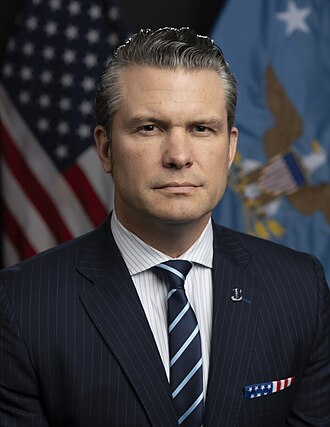Pete Hegseth

Pete Hegseth: Controversies and Questionable Rise to Secretary of Defense
Pete Hegseth’s appointment as U.S. Secretary of Defense in January 2025 marked one of the most contentious nominations in modern history. With no senior military leadership experience and a history riddled with scandals, critics argue Hegseth is less a qualified defense leader and more a political reward for loyalty to Donald Trump.
Major Controversies
Sexual Misconduct Allegations
In 2017, Hegseth was accused of sexually assaulting a woman at a Republican women’s conference in California. The police report alleged he cornered the woman in a hotel room, took her phone, and proceeded with unwanted sexual contact despite her repeated protests. Though no charges were filed, Hegseth paid a $50,000 settlement in 2023, a fact disclosed during his confirmation hearings and criticized by Senator Elizabeth Warren as evidence of unfitness for public office.
Toxic Leadership at CVA
While leading Concerned Veterans for America (CVA), Hegseth was the subject of a 2015 whistleblower complaint that described a toxic, misogynistic work culture. He reportedly ranked female employees as “party girls” or “not party girls” and failed to take action after a sexual assault report involving a colleague. While Hegseth denies wrongdoing, multiple former staffers corroborated the claims, calling into question his integrity and judgment.
Misogyny and Backpedaling
Hegseth has long disparaged the role of women in the military. In his 2024 book The War on Warriors, he argued that combat standards were being “watered down” to accommodate women—a claim he could not substantiate. His attempt to walk back these views during his confirmation hearing was widely viewed as political damage control rather than a genuine shift in belief.
Financial Misconduct
Both CVA and Veterans for Freedom, where Hegseth previously held leadership roles, were accused of gross financial mismanagement. A whistleblower accused Hegseth of using CVA funds for personal expenses, while VFF was left financially insolvent under his leadership—with nearly $400,000 in unpaid bills. Critics say these patterns show a reckless disregard for fiduciary responsibility.
Erratic Behavior and Abuse Allegations
Hegseth’s personal behavior has raised further red flags. Whistleblower accounts accuse him of drunkenness at political events and inappropriate conduct, including an incident at a strip club during a CVA conference. A signed affidavit from his former sister-in-law alleged that Hegseth verbally abused and physically intimidated his second wife, Samantha—allegations both parties deny, though Hegseth has admitted to infidelity and volatile behavior.
Biography Snapshot
-
Full Name: Peter Brian Hegseth
-
Born: June 6, 1980, Minneapolis, MN
-
Position: U.S. Secretary of Defense (since Jan 2025)
-
Education: Princeton University (B.A., Politics, 2003)
-
Former Roles: Fox News host, CEO of CVA
-
Military Rank: Major (National Guard)
-
Spouse: Jennifer Rauchet (third marriage)
-
Children: 7
Ideological Extremism
Beyond personal misconduct, Hegseth’s ideological stance has alarmed critics. He has promoted Christian nationalist views, including the fringe theory of “sphere sovereignty,” which prioritizes religious authority over civil institutions. His public speeches and writings are often laced with culture-war rhetoric, demonizing diversity, equity, and inclusion (DEI) initiatives as threats to military cohesion.
Defense Leadership Under Fire
Since taking office, Hegseth has moved swiftly to impose a far-right agenda at the Pentagon. He publicly fired Navy Chief Adm. Lisa Franchetti in February 2025, citing “woke leadership failures,” a move seen as politically motivated purging. His order deploying active-duty troops to enforce Trump’s mass deportation plan has raised constitutional concerns among military experts and civil rights groups.
Conclusion
Pete Hegseth’s elevation to Secretary of Defense is seen by many as a dangerous politicization of military leadership. With a history of scandal, aggressive ideology, and limited high-level military experience, his appointment reflects more on Donald Trump’s loyalty politics than on the needs of the U.S. defense establishment. Critics warn that his tenure threatens to undermine military professionalism, alienate allies, and inject partisanship into national security.
